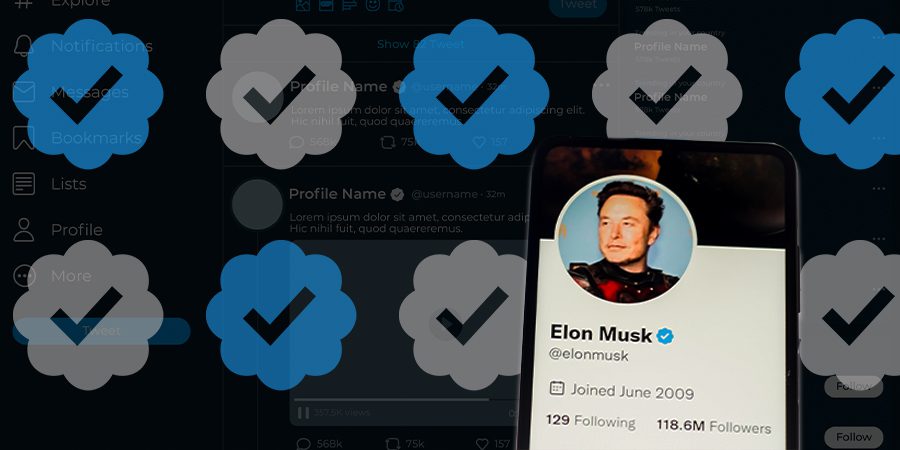In this article, we’ll delve into the controversy surrounding Elon Musk’s decision to grant blue checkmarks to users without their consent, the legal implications of this action, and the impact on Twitter’s once-prestigious verification system.
Key Takeaways:
- Elon Musk faces backlash and legal scrutiny for giving blue ticks to users without their consent.
- The move has potentially violated FTC rules meant to prevent fraud and false endorsements.
- The blue checkmark, once a status symbol, has now become a source of confusion and frustration for many users.
- Celebrity accounts and influencers who received unwanted blue ticks may have grounds for a false endorsement claim.
- Musk’s decision has led to unintended consequences, including impersonations, potential scams, and misinformation.
Unwanted Blue Ticks Stir Controversy
The recent controversy over Twitter’s blue tick verification badges can be traced back to Elon Musk, the tech billionaire who took over the platform last year.
In an unexpected move, Musk decided to grant blue checkmarks to certain users without their consent, including prominent supporters of the #BlockTheBlue campaign.
This campaign aimed to block accounts that had paid for a blue checkmark, signifying their opposition to Twitter’s premium plan, Twitter Blue.
Many Twitter users have expressed their outrage and frustration at having received unwanted blue ticks.
Musk’s decision has left them questioning the value and meaning of the blue tick, which was once a prestigious symbol of authenticity on the platform.
Legal Implications and FTC Violations
The granting of blue ticks without consent has raised concerns about potential legal implications.
Experts argue that this move potentially violates Federal Trade Commission (FTC) rules designed to prevent fraud and false endorsements.
According to Timothy Kerr, who works for a group called Free Press that supports media, Elon Musk could get into legal trouble for fake endorsements that go against the Federal Trade Commission’s rules.
Alejandra Caraballo, who teaches law at Harvard and focuses on online law, agrees that it’s possible for putting a fake verification badge on a big Twitter account to be considered as deceptive trading.
Apart from the legal consequences, someone who receives a blue checkmark without their permission might have a reason to file a false endorsement lawsuit, which is different from any FTC inquiry on deceitful business practices.
This shows that Musk’s choice to give out blue ticks without consent has more dangers involved.
The Transformation of the Blue Checkmark
The blue tick, once a recognizable online status symbol, has now become a source of confusion and frustration for many Twitter users.
As a result of Musk’s decision to make blue ticks available for a price, the symbol has evolved into something more complex and, in some cases, has become politicized.
Now, the blue tick can be seen as a loyalty pledge or a sign of support for Musk and his vision for the platform.
Conversely, for those who received a blue tick against their will, it represents a sense of shame or embarrassment.
The blue tick has also been labeled as a symbol of gullibility and subservience for those who willingly paid for it.
Celebrity Accounts and False Endorsement Claims
Some famous people, like writer Stephen King and rapper Lil Nas X, found out they had been given a verification badge on Twitter without their permission.
Stephen King tweeted that his account said he had signed up for a paid service called “Twitter Blue” and given a phone number, which he did not do.
Famous people and social media stars could sue for untrue advertising even if the Federal Trade Commission investigates them for dishonest business practices.
Alejandra Caraballo warned about the legal risks of Elon Musk’s behavior and suggested that he should keep good lawyers instead of trolling users.
Unintended Consequences of Musk’s Decision
Musk’s decision to grant blue ticks to users without their consent has had several unintended consequences.
For one, there has been an increase in impersonations and potential scams due to the changing meaning of the blue tick.
Additionally, misinformation may spread more easily, as the blue tick no longer reliably indicates an account’s authenticity.
In addition, Musk’s actions have resulted in him returning to the same system that he aimed to remove, where Twitter has the power to decide who should get a verified badge based on their importance or merit.
However, the key distinction now is that Musk has the authority to make those decisions himself. Unfortunately, this change has made the verification process even less clear and significant.
Instead of simplifying the verification process or promoting a sense of egalitarianism, Musk’s actions have complicated the situation and further highlighted existing power structures and influence centers on social media.
The refusal of high-profile users to pay for verification has forced Musk to pivot in ways that directly undermine the principles he claimed to promote, raising questions about Twitter’s long-term potential to generate revenue.
Conclusion:
Elon Musk’s decision to grant blue ticks without consent has caused widespread confusion, frustration, and legal debates.
The once-prestigious symbol of authenticity on Twitter has become a complex and controversial subject, reflecting conflicting messages and exposing the platform to potential legal challenges.
As Musk continues to navigate this issue, the future of Twitter’s verification process and the meaning of the blue tick remain uncertain.
 Sections of this topic
Sections of this topic
















